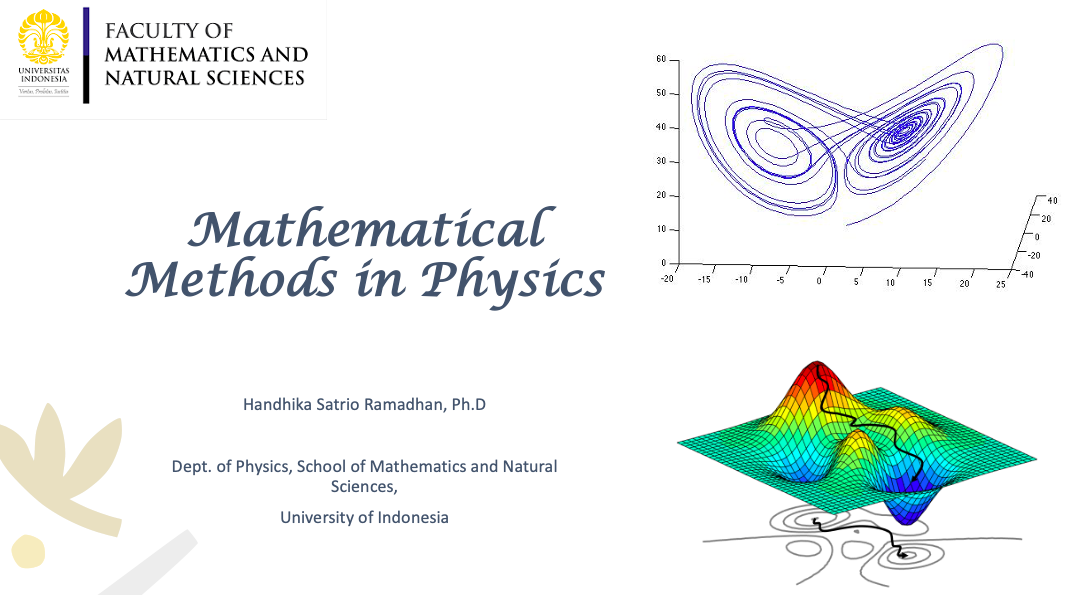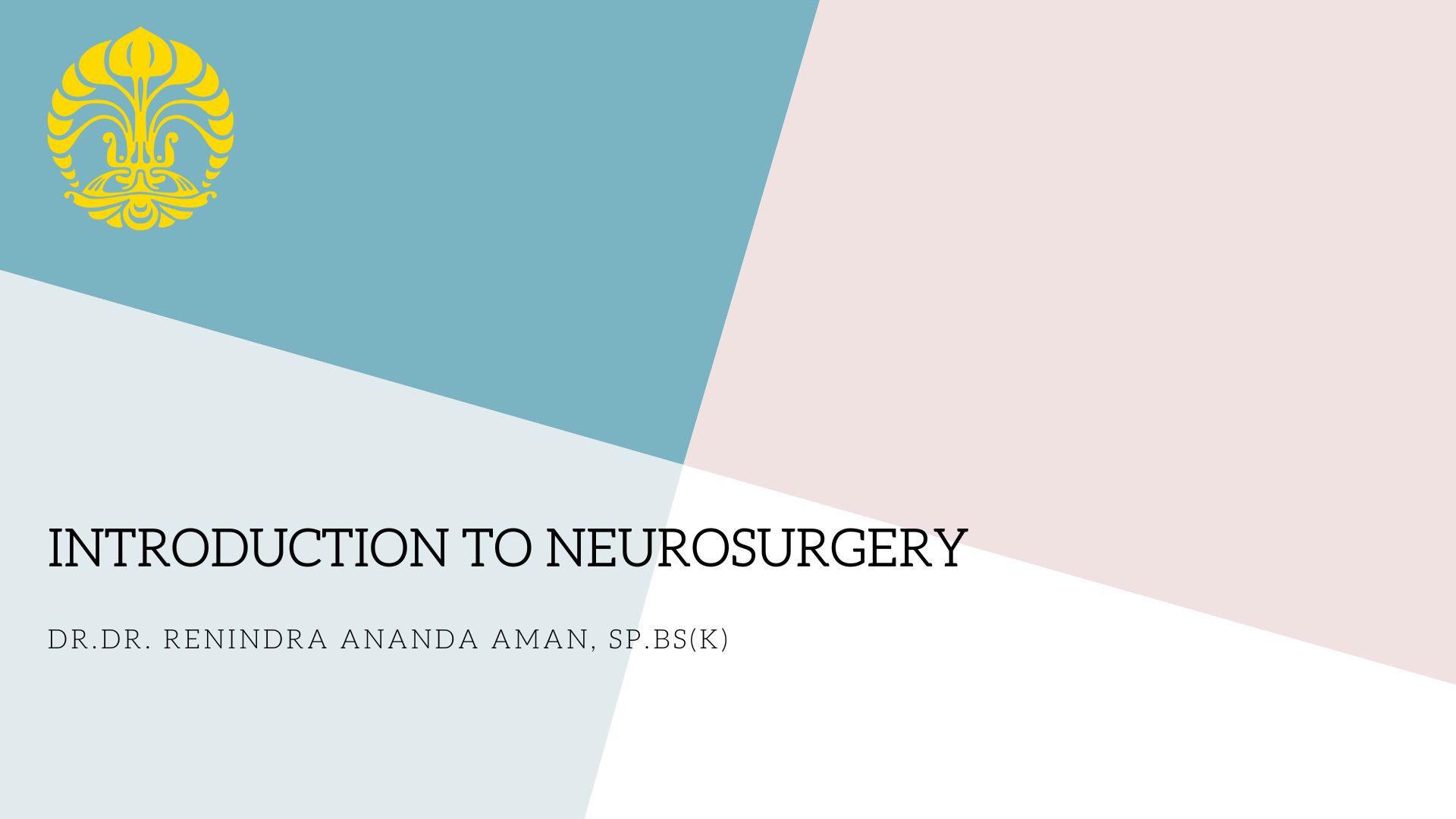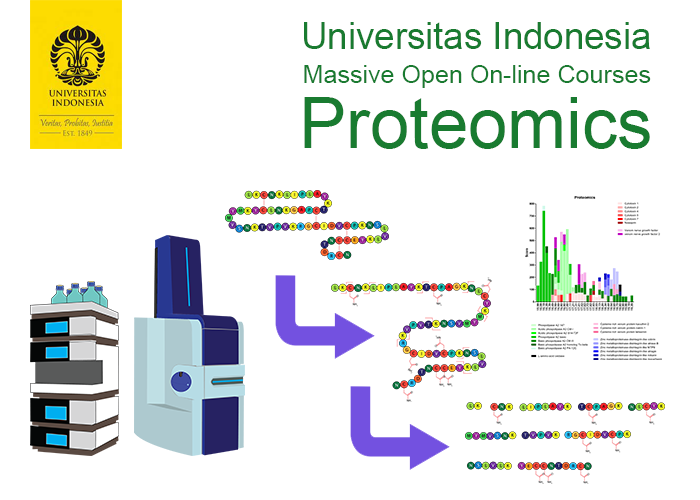
Hello everyone,
Welcome to the Mathematical Methods in Physics course!
As the class instructor, I am delighted to have you as participants in this program, and wish you all good luck in your study. This course is offered by the Faculty of Mathematics and the Natural Sciences (MIPA) University of Indonesia.
Course Description
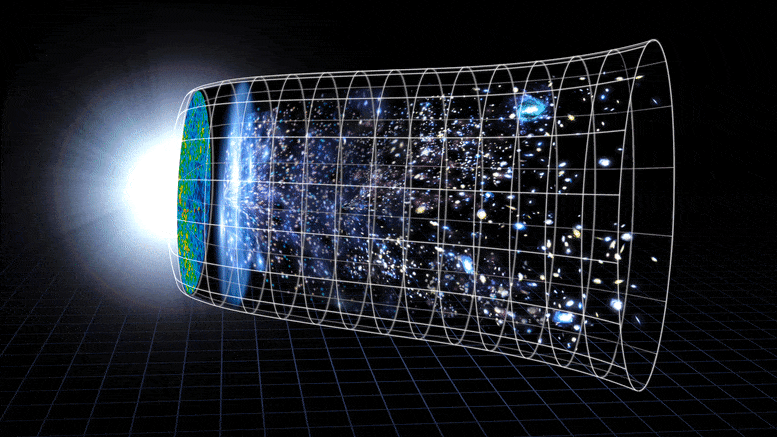
Physics is the (scientific) description of nature. Galileo Galilei once said "The grand book of the universe was written in the language of mathematics, without which mankind will be lost like in the darkness of labyrinth". Mathematics becomes the main language physics uses to describe how nature behaves. As the most unambiguous language, mathematics provides quantitative modeling of nature. It is thus essential to understand this language in order to understand the universe. Mathematical principles and techniques used to study nature are popularly known as the Mathematical Methods in Physics.

Despite a vast variety of mathematical tools employed in physics, there is a very fundamental principle underlying all the laws. Nature seems to obey optimization principle, and its behavior can be modeled in terms of differential equations. It is therefore the aim of this course to introduce the students to this two selected topics: the linear ordinary differential equations, and the calculus of variations.
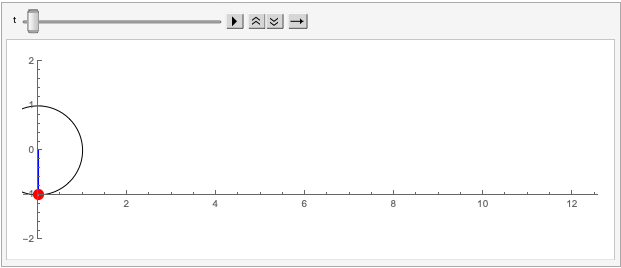
Learning Outcome
Despite an introductory class, we hope that this five-week course can give you a fresh perspective on several mathematical techniques used in solving physical problems. In particular, participants are expected to understand how a certain dynamical equations in certain natural system can be obtained from optimization, and how they can be modeled using differential equations.
Other Information
The class will be delivered in English. The mode for this MOOC is self-paced. In total there are two topics distributed in five weeks:
- Week 1: Introduction to the Differential Equations in Nature.
- Week 2: Linear First-order Ordinary Differential Equations.
- Week 3: Linear Second-order Ordinary Differential Equations.
- Week 4: Optimization in Nature and the Calculus of Variations.
- Week 5: Applications of Calculus of Variations.
To fully understand each topic, we suggest each participant to spend at least 2 hours/week.
I wish you a pleasant and an exciting learning experience. Good luck!
Handhika S. Ramadhan, Ph.D
Instructor's Short Biography

Handhika S. Ramadhan, Ph.D was born in Jakarta on July 10 1983. He received his bachelor in physics from Universitas Indonesia (UI) in 2005. He pursued his doctoral study in theoretical physics at Tufts University in Medford, Massachussetts, USA, and obtained his PhD in 2011 with the dissertation title “Higher-dimensional topological defects in cosmology” under the supervision of Prof. Jose Juan Blanco-Pillado.
After a temporary appointment at Indonesian Institute of Sciences (LIPI), since 2013 Dr. Ramadhan has been a permanent faculty member at the Department of Physics at UI. His research interests include: topological defects and instantons in cosmology, modified gravity theories, classical and quantum aspects of black holes, and semiclassical gravity in compact objects. Keywords: mathematical methods, differential equations, optimization, geodesic, brachistochrone.

